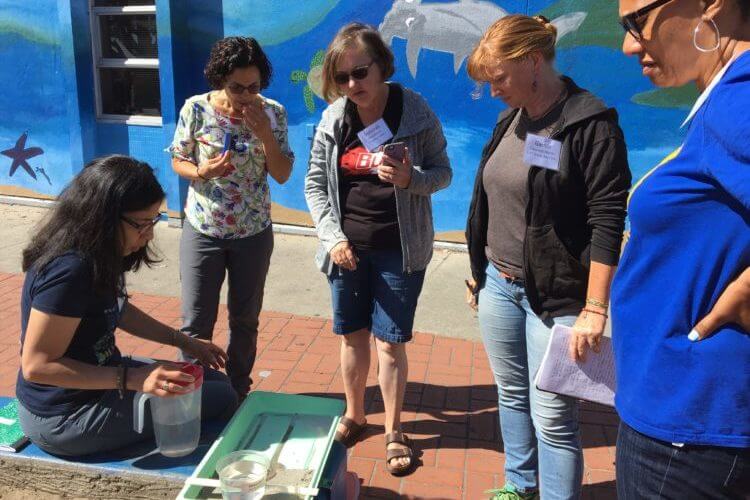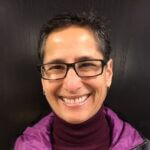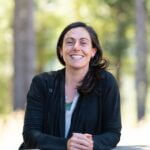This year’s annual Green Schools Conference and Expo in St. Paul, Minnesota brought together education leaders, community-based organizations, architects, curriculum-writers, and others under the theme of “Advancing Sustainable Schools for All.” The conference was a mix of inspiration and celebration, and breakout sessions were full of practical ideas for moving forward at the local and regional levels.
Major highlights included keynote speeches, starting with Emmanual Pratt—founder and co-director of the Sweet Water Foundation in Chicago—a self-described artist, urban farmer, and architect. His visionary talk was a call to action: Reflect on historical and current inequities and see the strengths in every person and every community; reconnect to nature, food, and ecosystems; and reimagine solutions. On day two, the keynote was delivered by Zaria Forman, an incredible pastels artist who travels to remote regions of the world collecting images and inspiration for her work documenting climate change.
During our breakout session “California’s Path to Systemic Change for Environmental Literacy,” we had the opportunity to share the California Environmental Literacy Initiative (CAELI) work from our own perspectives—a regional support organization, a county office of education, and a leading-edge exemplar school district.

Regional Support Organization
Jedda Foreman shared how the Lawrence Hall of Science partnerships with ChangeScale, community-based organizations, environmental education providers, and five school districts in the Bay Area work to advance environmental literacy. She described components of a theory of change that these partnerships hinge on, including:
- setting forth a vision for environmental literacy;
- understanding the current reality;
- creating a leadership team that includes district partners and leaders at all levels of the district;
- creating supportive policies;
- establishing agreements with community partners;
- embedding environmental literacy into professional learning and instructional materials; and
- ensuring that equity, inclusion, and cultural relevance inform each step.
County Office of Education
Andra Yeghoian, San Mateo’s first county office of education environmental literacy coordinator, described how the County Office of Education is supporting 23 school districts—5,000 teachers in 200 public and private schools, and 115,000 students—across San Mateo County. Her talk began with a brief overview of the vision and guiding philosophies & frameworks in the San Mateo County Office of Education’s (SMCOE’s) environmental literacy Initiative. She detailed the supportive context SMCOE provides through key programs for each stakeholder group, which aim to build capacity and drive incremental change including:
- a community of practice for district and site level administrators;
- fellowships and model curriculum for teachers;
- a youth leadership network for students;
- a network for community and environmental education partners;
- an annual Schools for a Sustainable Future Summit;
- the One Planet Schools Challenge, a local awards program that recognizes leaders driving transformational change in their school communities; and
- a robust website of resources.
Leading-edge District
Terri Elkin, secondary coordinator at Alameda Unified School District, highlighted work taking place there. She shared a timeline of how environmental literacy work has progressed in Alameda schools, including:
- a focus on reducing waste and energy use;
- a comprehensive approach involving integrated curricula;
- prioritized outdoor experiences for students;
- professional learning for teachers; and
- collaboration with community-based partners.

The audience, a mix of Californians and attendees from other states, resonated with the systemic approach California is taking to promote environmental literacy. Questions included topics ranging from integrating standards and how to select curricula for adoption to identifying partners and the role of state agencies in advancing environmental literacy. Participants were inspired—eager to adapt and integrate ideas from the session into their own communities.
The Green Schools Conference and Expo truly lived up to its reputation as a leading national event, bringing key players together to share and learn how to make green schools a reality.




